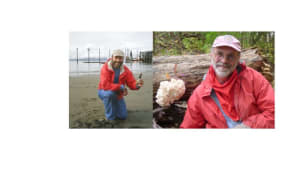Coastal Lecture: Wild Edibles of the North Shore
Wednesday, Sep 25, 2024 6:00p -
7:30p
Where:
Castle Hill on the Crane Estate
290 Argilla Road
Ipswich, MA 01938
Admission:
$20
Categories:
Classes, Lectures & Conferences, Nature
Event website:
https://thetrustees.org/event/420021/
The North Shore is home to over 100 species of edible wild plants, many of which are more nutritious and/or flavorful than their cultivated counterparts. These include native species, like Shagbark Hickory and Beach Plum; non-native weeds, like Chicory and Burdock; and invasive species, like Autumn Olive and Japanese Knotweed. Join Russ Cohen, author of the book Wild Plants I Have Known…and Eaten, for a 60-minute presentation to learn about at least two dozen of the tastiest wild plant species the North Shore has to offer. These include species everyone knows well, like Daisies and Dandelions, to species people may have never even heard of, like Calamus and Carrion Flower. Keys to the identification of each species will be provided, along with info on edible portion(s), season(s) of availability and preparation methods, as well as guidelines for safe, ethical and environmentally-responsible foraging. Russ will also accompany his talk with handouts and samples of goodies made with wild foraged ingredients for guests to sip and nibble on.
About the speaker:
Until his retirement in June of 2015, Russ Cohen’s “day job” was serving as the Rivers Advocate for the Massachusetts Department of Fish and Game’s Division of Ecological Restoration, where one of his areas of expertise was in riparian vegetation. Now Russ has more time to pursue his passionate avocation, which is connecting to nature via his taste buds, and assisting others in doing the same. In addition to leading over three dozen wild edibles-themed walks and talks each year at a wide variety of venues throughout the Northeast, Russ has now taken on a role of Johnny Appleseed for edible native species. He has set up a small nursery (in Weston, MA) where he grows/keeps plants that he propagates from seed (some of which he collected himself). He is then collaborating with land trusts (including The Trustees), cities and towns, schools and colleges, state and federal agencies, Tribal members and groups, organic farms and others to plant plants from his nursery in appropriate places on their properties. Russ has collaborated on over two dozen such projects in the past seven years. Read more in Russ’s online bio here: http://users.rcn.com/eatwild/bio.htm
Our foraging programs are led by knowledgeable guides and focus on the ecology of wild edibles and their vital role in the ecosystem and our food system. Consuming wild edibles on your own should be done at your own risk and discretion. It is your responsibility to ensure that you have accurately identified any plant before consuming it. If there are any doubts about the identification it is best not to eat it.
-

SponsoredAffordable Spanish Classes in Boston (in-person and online courses) | BASE
Monday, Jul 07, 2025 goes until 07/18
Boston Area Spanish Exchange (BASE)
-

SponsoredExplore The New England Botanic Garden at Tower Hill: Day Trip from Boston
Sunday, Jul 06, 2025 11:00a
New England Botanic Gardens at Tower Hill
-

SponsoredDay Trip from Boston: Kayak Castle Neck River at Crane Estate
Saturday, Jul 05, 2025 11:30a
Crane Beach
-

SponsoredCurated Cuisine: Let’s talk lobster with Row 34’s Jeremy Sewall and Select Oyster’s Michael Serpa
Monday, Jul 14, 2025 6:30p
WBUR CitySpace
-

Sponsored


